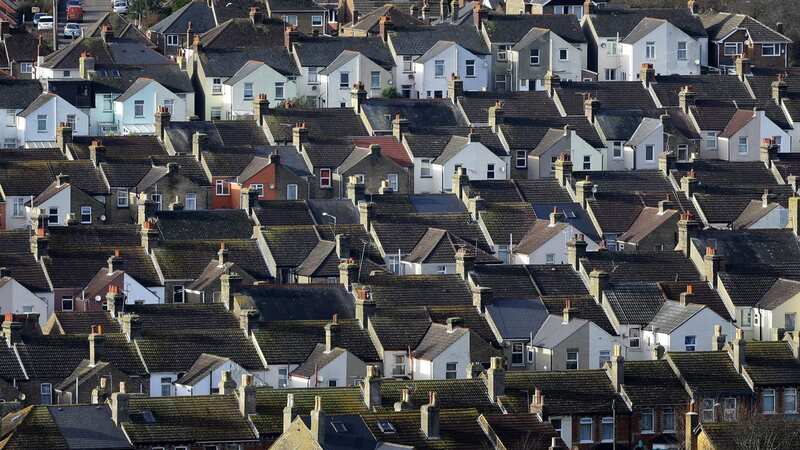

UK house prices have seen "little changed" from a year ago, says the Office for National Statistics (ONS). However, rents are hitting record highs month after month.
The average UK house price in August 2023 was £291,000, barely different from the previous year, but £9,000 more than the low point in March 2023, according to ONS.
Aimee North, ONS head of housing market indices, said: "UK average house prices are little changed from a year ago, but annual inflation is rising in Scotland."
She added: "In the year to August, average house prices rose fastest in the North East, but fell across southern and eastern England."
Meanwhile, "UK rental prices continue to surge reaching record highs for the 18th month in a row."
 Teachers, civil servants and train drivers walk out in biggest strike in decade
Teachers, civil servants and train drivers walk out in biggest strike in decade
These figures were released on the same day that the ONS announced UK inflation remained at 6.7% last month. This was due to higher petrol and diesel prices for motorists balancing out easing food and drink price rises.
This puts a stop to three consecutive months of easing pressure on household budgets.
The Bank of England has been using base rate rises as a tool to quell inflation, causing mortgage holders to see their costs increase. Several reports also suggest a lack of supply in the rental sector is pushing up rental prices.
On a seasonally adjusted basis, the average UK house price increased by 0.2% in August 2023, following a decrease of 0.3% in July 2023.
The average house price in England stayed the same (0.0%) over the year to August 2023, with the typical home costing £310,000, a rise of £9,000 since March's low point.
In Scotland, house prices went up by 1.1% over the year to August 2023, with an average price of £194,000, which is £13,000 more than February's low point.
House prices in Wales dropped by 0.1% over the year to August the first yearly fall in Wales's average house price since April 2020. The average house price in Wales was £217,000 in August 2023, £8,000 higher than a recent low point in April.
Northern Ireland saw a rise in the average house price by 2.7% over the year, reaching £174,000.
Within England, the North East had the highest annual house price inflation in August, with average prices increasing by 3.6% annually.
The East of England recorded the weakest annual house price inflation, with average prices decreasing by 1.6% in the 12 months to August.
 Richard 'shuts up' GMB guest who says Hancock 'deserved' being called 'd***head'
Richard 'shuts up' GMB guest who says Hancock 'deserved' being called 'd***head'
In London, house prices fell by 1.4% annually.
A separate report released by the ONS on Wednesday said private rental prices paid by tenants in the UK rose by 5.7% in the 12 months to September 2023.
This represented the biggest annual percentage change since comparable records started in January 2016.
The annual inflation rate of private rental prices in the UK started to increase in the second half of 2021, the ONS said.
London's private rental prices have shot up by 6.2% in the year leading to September 2023, marking the highest annual increase since records began in January 2006.
Greg Tsuman, director of lettings at Martyn Gerrard Estate Agents, warned: "Home ownership is further away than ever for tenants." and "Instead, many are finding that their rental prospects are now in jeopardy as well."
He also highlighted a severe lack of supply, saying: "Affordable two-bedroom properties are attracting as many as 80 inquiries from desperate tenants."
This situation is forcing renters to relocate to cheaper areas, causing a ripple effect on prices as people move from city centres to suburbs. "Trends in the city are reverberating outwards." he added.
Harriet Scanlan, lettings manager at London-based estate agency Antony Roberts, noted: "The supply and demand chain continues to strongly favour landlords." and "With limited rental properties available and high demand from tenants, it remains a landlords' market."
Meanwhile, Nick Leeming, chairman of estate agent Jackson-Stops, said: "Across our national network, we are seeing new instructions rise as committed sellers remain eager to make their move a level on a par with the same time a year ago."
Iain McKenzie, the boss of the Guild of Property Professionals, said: "What we are seeing on the ground is that sellers are increasingly more flexible when it comes to the offer they are accepting, and this may be helping the market."
Nathan Emerson, the head honcho of property professionals' group Propertymark, said: "The growing disparity in the number of homes available to rent when compared with increased demand from prospective tenants is alarming and continues to widen from already worrying levels."
Tom Bill, who leads UK residential research at Knight Frank, said: "While mortgage rates have stabilised, house prices will continue to come under pressure as monthly mortgage costs rise sharply."
"That said, we think most of the price correction will happen this year and demand will strengthen in 2024 as economic sentiment improves. Activity may stutter ahead of next year's general election but modest single-digit annual growth should return from 2025."
Emily Williams, the research director at Savills, said: "Easing mortgage rates, boosted by a more positive outlook for the rate of inflation, means there should be capacity for the market to return to growth in the second half of 2024."
Graham Cox, the founder of Bristol-based broker SelfEmployedMortgageHub.com, commented: "Buyers are understandably adopting a wait-and-see approach, hoping for lower house prices and mortgage rates. The former is nailed on, the latter may take a little while yet as inflationary pressures, based on today's data, persist."
* An AI tool was used to add an extra layer to the editing process for this story. You can report any errors to webhomepage@mirror.co.uk